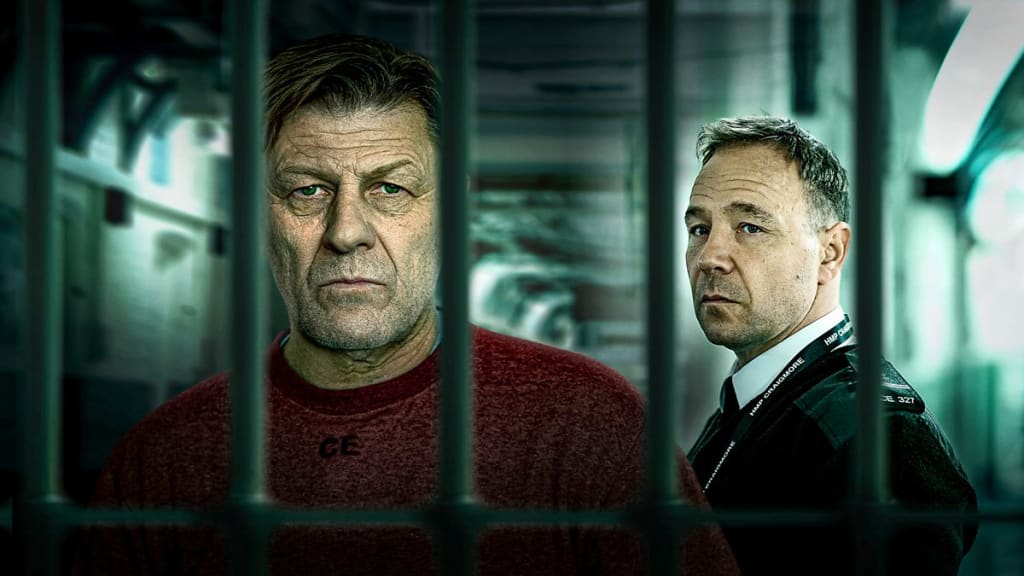Time review
Gritty prison drama makes for gruelling viewing.

Time, the latest project from Jimmy McGovern, follows a thread from across the acclaimed television writer's career as it shines a spotlight on an uncomfortable truth of British society. Here it is the frightening reality of incarceration in modern day Britain.
The story follows two characters: Mark Cobden (Sean Bean), a mild-mannered teacher sentenced to four years for a drunken hit and run, and Eric McNally (Stephen Graham), a dedicated prison officer faced with a terrible choice. Both actors deliver monumental performances, with Bean demonstrating here how he is an actor never unwilling to challenge himself, just as in McGovern’s The Accused (also alongside Graham). Mark, a recovering alcoholic, is initially a surrogate for the audience as he enters the fictional HMP Craigmore as clueless as we may be as to day-to-day prison goings on. What we discover are cramped Victorian cells, brutal violence and a variety of prisoners with severe issues of mental health. As illustrated by the harrowing fate of Mark’s first cellmate Bernard (Aneurin Barnard), many inmates are in desperate need of treatment in a mental health facility, but as Graham’s character laments in the first episode ‘there’s no room for them’.
Viewers may find some the sudden and shocking violence disturbing, and this is clearly McGovern’s intended effect. He wishes the failings of our incarceration system to be front and centre. And yet, ever the powerful storyteller, episodes two and three tenderly and painfully explore Mark’s journey and his personal relationship to his crime. Bean, often typecast as aggressive villains, plays wonderfully against type. Mark does not think of himself as a violent man, and yet has to reckon this with the nature of his crime. He sees the violence he is subjected to at the hands of fellow prisoners, and the violence has little choice but to commit himself as punishment. The British notion of imprisonment as punishment rather than rehabilitation is one that lies at the heart of our justice system and could be argued to be related to the high reoffending rates of former convicts. The arc of Eric McNally may be seen as representative of how the prison system does not truly stop the influence of violent crime and the influx of drugs. In Time, prisoners confess to having never even touched hard drugs before entering prison. Brian McCardie delivers a menacing performance as an older prisoner seemingly with enormous of power within Craigmore.
I suppose this is the central message of Time; that the power structures within prison are not what one may think them to be, nor what they should be. Prison officers remain powerless at times to prevent violence and crime – and are often there simply to mop up the mess. The prison system remains a facet of the cycle of crime. Siobhan Finneran delivers a moving turn as a kindly pastor, willing to help all prisoners on their journey to recovery. While we have sympathy for Mark, we are also not left to forget the impact of his actions on others – notably his family and the family of the victim. Bean’s weary face carries the weight of all that his character has done, and all that his character has seen – and for that it is an extraordinary performance. Bizarrely, the last thing I had watched prior to binging Time was a rerun of Paddington 2, which had a decidedly different depiction of incarceration, involving tearooms and copious amounts of marmalade. As you can imagine, Time was a markedly sobering experience






Comments
There are no comments for this story
Be the first to respond and start the conversation.